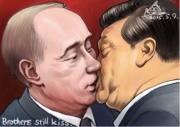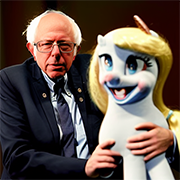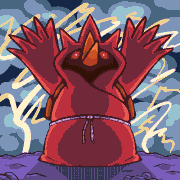(Thread IKs:
fart simpson)
|
Xelkelvos posted:This post speaks to me because it boggles my mind that Chinese is probably the only language that has its own phonetic alphabet but the native speaking nations don't seem to incorporate it in any way outside of electronic input or in early age education. You talking pinyin or zhuyin here
|
|
|
|

|
| # ? May 20, 2024 21:46 |
|
LimburgLimbo posted:You talking pinyin or zhuyin here Zhuyin, but pinyin would also work. I only say Zhuyin from some half-baked sense of cultural purity in trying to preserve that part of their linguistic history rather than just moving to latin characters like everyone else.
|
|
|
|
Xelkelvos posted:I have a new pet peeve phrase. The implication is if that simplification was a not-insignificant saving resource-wise. Of course it probably saved on ink somewhat, but was it a notable savings in ink? Or was it basically a savings of a few pennies over the cost of thousands? It's not just an issue of ink, but of letterpressing itself. The more complex your characters are the more expensive the casts will be because they need finer machining, and the more characters which are in press circulation the more resources are wasted on producing different types of casts. Simplification standardized the kind of characters that would be used in print across the board. There's a complex manufacturing process behind publishing, and the more simplified and standardized it gets the more literature you can print out on a mass scale. It sounds like the costs should be insignificant, but for the material conditions of the time they definitely were significant. What do the detractors ITT believe is the reason that the PRC bothered simplifying Chinese? If it was for political purposes, then why were simplified characters also standardized in Malaysia and Singapore? Pener Kropoopkin has issued a correction as of 16:28 on Feb 5, 2019 |
|
|
|
The advantage of simplified characters is mostly that they’re frequently much easier to write then their traditional counterparts. Many of the simplifications already existed before ‘Simplified’ was formalized as a standard set of characters, as shorthand used when handwriting. This btw is why Japanese Kanji share some of the same simplifications. Of course everybody now just uses keyboard input so it’s irrelevant. Simplified does not reduce the number of characters except to remove calligraphic variants of the same character. If the PRC leadership had really wanted to make Chinese literacy easy they’d have swapped out writing systems entirely for a syllabary like Zhuyin. This would have the disadvantage of making untransliterated Classical Chinese literature unreadable to non-specialists, but Classical is already difficult for modern Chinese speakers to read, let alone write. It would also make typesetting way easier.
|
|
|
|
Fallen Hamprince posted:The advantage of simplified characters is mostly that they’re frequently much easier to write then their traditional counterparts. Many of the simplifications already existed before ‘Simplified’ was formalized as a standard set of characters, as shorthand used when handwriting. This btw is why Japanese Kanji share some of the same simplifications. Of course everybody now just uses keyboard input so it’s irrelevant. Simplified does not reduce the number of characters except to remove calligraphic variants of the same character. It's also not as though there couldn't have been a blended system where common language uses Zhuyin, but formal, classical or more specialized language uses characters. Retaining characters isn't really much a of simplification at a broader level, regardless of how simplified the characters are. I imagine, just like the retention of Traditional Characters in the face of something like pinyin or conversion to zhuyin, however, it's a mindset of retaining the cultural element rather than changing it or changing it too broadly. Pener: I will cede the point on machining costs for typesetting. Edit: Also, Happy Chinese New Year everyone.
|
|
|
|
Fallen Hamprince posted:If the PRC leadership had really wanted to make Chinese literacy easy they’d have swapped out writing systems entirely for a syllabary like Zhuyin. This would have the disadvantage of making untransliterated Classical Chinese literature unreadable to non-specialists, but Classical is already difficult for modern Chinese speakers to read, let alone write. It would also make typesetting way easier. I can already imagine the hot takes about the communist party wanting to cut off access to older cultural material.
|
|
|
|
Fallen Hamprince posted:The advantage of simplified characters is mostly that they’re frequently much easier to write then their traditional counterparts. Many of the simplifications already existed before ‘Simplified’ was formalized as a standard set of characters, as shorthand used when handwriting. This btw is why Japanese Kanji share some of the same simplifications. Of course everybody now just uses keyboard input so it’s irrelevant. Simplified does not reduce the number of characters except to remove calligraphic variants of the same character. A pure sounding system doesn't work for Chinese because there are too many words with the identical sounds. If you use zhuyin or pinyin to input Chinese you should know that there are some combination of sounds bring up 20+ words for selection. I believe this is a ptoblem with Vietnamese writing but that's just what I heard, maybe Vietnamese is more like Cantonese which have more variety of sounds.
|
|
|
|
tino posted:A pure sounding system doesn't work for Chinese because there are too many words with the identical sounds. If you use zhuyin or pinyin to input Chinese you should know that there are some combination of sounds bring up 20+ words for selection. I believe this is a ptoblem with Vietnamese writing but that's just what I heard, maybe Vietnamese is more like Cantonese which have more variety of sounds. Adopting a mix of characters with zhuyin would probably be the most effective amelioration to that issue, but beyond that, it's largely just solved by context. Spoken language already has this issue, doesn't it?
|
|
|
|
Durr lets not convert to Esperanto
|
|
|
|
Kassad posted:I can already imagine the hot takes about the communist party wanting to cut off access to older cultural material. this is exactly it, it's a stupid conspiracy theory that reaches into racist territory cuz the narrative is that because mainlanders "only knows 5,000 characters" or some poo poo like that they don't understand deeper cultural meanings and are brainwashed by communism, so they can only speak in doubleplusgood instead of archaic classical chinese or some poo poo like that. It's the classic "Their language/culture are inferior to ours" thus inferior to people born in Hong Kong. the whole simplified vs traditional is an regionalist identity politics issue that branches into anti-communist party politics Typo has issued a correction as of 20:33 on Feb 5, 2019 |
|
|
|
tino posted:Simplified standardize shorthand ways to write components of characters that traditional users are already doing in fast hand writing and combines similar characters are that only slightly different in meaning. I literally loving said this 3 posts above the one you quoted. Added to the idiot list.
|
|
|
|
Pener Kropoopkin posted:What do the detractors ITT believe is the reason that the PRC bothered simplifying Chinese? If it was for political purposes, then why were simplified characters also standardized in Malaysia and Singapore? This is moving the goal posts from "simplified is the primary reason for literacy growth" to "simplified saves printers money and anyway those forms were already known its just a new standard". Just so you know.
|
|
|
|
Typo posted:the whole simplified vs traditional is an regionalist identity politics issue that branches into anti-communist party politics Yeah this is true after the fact. The reason to simplify in the first place was the intent to make the language easier and more efficient but there was no scientific test that showed students learn it faster or anything. I mean revolutionary chinese policies were not always based on some white paper that was floating around. Like a few other policies it was scientifically unsound but not harmful either.
|
|
|
|
Xelkelvos posted:Adopting a mix of characters with zhuyin would probably be the most effective amelioration to that issue, but beyond that, it's largely just solved by context. Spoken language already has this issue, doesn't it? I think the difference is that spoken Chinese/language use limited set of words while literature Chinese use more words. Also when you are speaking, you can use selective emphasis of sounds and gestures to help you. Also current Chinese writing system already include the sound information. Right half of a character usually carry the sound information; and the left half carry the contest. That's why you can use a single character to express a word. For example most of the provinces have a single-character name. Now if you reduce the word to just sound you can not do that anymore. For example on Chinese license plate, you use "粤A" to represent plates from Guangzhou, if you just write "Yue A" you have no idea which Yue is this. And "Guangzhou" would take up too much space. Also there are more than one city called "Guangzhou". tino has issued a correction as of 20:39 on Feb 5, 2019 |
|
|
|
Modest Mao posted:This is moving the goal posts from "simplified is the primary reason for literacy growth" to "simplified saves printers money and anyway those forms were already known its just a new standard". Just so you know. I never said simplified is the primary reason for literacy growth, I said it made it easier to realize mass literacy. "Saving printers money" isn't just a matter of shedding off pennies on a ledger, it's a matter of how much literature which can be produced that people can actually read. You need literature to teach literacy.
|
|
|
|
Why is Classical so hard? Have the meaning of characters changed since the good old days?
|
|
|
|
Boatswain posted:Why is Classical so hard? Have the meaning of characters changed since the good old days? Like all living languages things shift over time; characters change meaning or connotation, fall out of use, etc. Similar to how a lot of words in Shakespeare had different meanings when they were written then today. Students have to be taught how to interpret classical Chinese literature because of this. One big difference is that while modern Chinese often uses composite words comprised of two characters (often with similar individual meanings), Classical words are almost always single character and thus monosyllabic.
|
|
|
|
tino posted:I think the difference is that spoken Chinese/language use limited set of words while literature Chinese use more words. Also when you are speaking, you can use selective emphasis of sounds and gestures to help you. You say "usually" which means this isn't a universal case. Then there's the weird case of foreign words/names in text that's transliterated. I know sound-alikes are used, but what determines which character is used besides its sound and how would one know that it's a foreign name rather than a real phrase? If it's just context, then wouldn't that resolve a lot of similar issues regarding homophones in Chinese that become homographs in a purely zhuyin system? Your license plate example, doesn't make sense here afaict and language on license plates isn't really something one uses as an example of written language as there's all sorts of ways to display that information in a clear way than just a single letter/character. Is there more than one province of Guangzhou? I'm not surprised there's more than one city with that name, but the same applies in practically every country. Hell, there are cities in the US that have the same name as states. And like I said, there's always using a mix of zhuyin and characters like how Japanese uses kana and kanji is probably the ideal solution to minimize homophone issues while retaining any linguistic subtleties.
|
|
|
|
China!: Added to the idiot list
|
|
|
|
The list just got ten characters longer.
|
|
|
|
So many lists it's like I'm at an MSS meeting!
|
|
|
|
Xelkelvos posted:You say "usually" which means this isn't a universal case. Then there's the weird case of foreign words/names in text that's transliterated. I know sound-alikes are used, but what determines which character is used besides its sound and how would one know that it's a foreign name rather than a real phrase? If it's just context, then wouldn't that resolve a lot of similar issues regarding homophones in Chinese that become homographs in a purely zhuyin system? Nobody above the level of grade school literacy would mistaken a foreign transliterated name to a Chinese word. There a set of strict translation rules mainland media has to follow. Unless you are talking about Hong Kongnese way of intentionally making a foreign name look and sound like Chinese. quote:Your license plate example, doesn't make sense here afaict and language on license plates isn't really something one uses as an example of written language as there's all sorts of ways to display that information in a clear way than just a single letter/character. Is there more than one province of Guangzhou? I'm not surprised there's more than one city with that name, but the same applies in practically every country. Hell, there are cities in the US that have the same name as states. You don't even know if Guangzhou is a city or a province, why am I wasting time with you. LOL. Japanese writing is a bad example because it's the most complicated writing system of the world. Part of the problem is that it still borrow too much from a foreign writing system (Chinese) while its words pronunciation sound nothing like Chinese. So you ends up with using Kanzi for the core meaning but can not reuse them to help with the sound. Korean writing is example of good writing reform, Japanese is not.
|
|
|
|
https://twitter.com/FinancialTimes/status/1092944032186142720
|
|
|
|
https://twitter.com/SuperMugatu/status/1092944797013340160
|
|
|
|
In the movie Mortal Engines, the first world is marauding around the third world harvesting it for resources and turning its conquered inhabitants into wage slaves until it runs out of people to pillage. It then sets its sights on untapped Asia in order to sustain itself, with Tibet (Chinese province) as the gateway, with a giant wall protecting it from the first world imperialist marauders, representing the CPC.
|
|
|
|
im not bringing clicks to that shitrag just copy paste their bullshit
|
|
|
|
Sure.quote:To a western ear, the year of the swine may not sound particularly auspicious. But the Chinese zodiac sign of the pig is usually considered lucky, since it represents wealth and good fortune. I'm the Sinocised world
|
|
|
|
unsinocised
|
|
|
|
so is this the year of peppa pig if not which pig is it
|
|
|
|
Graphic posted:unsinocised
|
|
|
|
hot take: some good stuff will happen in the year of the pig in china, and some bad stuff will happen in the year of the pig in china
|
|
|
|
appropriately for the recent topics of the thread i got ahold of some yale grammars to deepen my language studies outside of class textbooks, and some have the freakin traditional characters! one even uses wade-giles instead of pinyin. which won't be impossible to adjust to but it will be a major pain in the rear end.
|
|
|
|
R. Guyovich passed go, he should collect 200RMB IMO (USER WAS PUT ON PROBATION FOR THIS POST)
|
|
|
|
I was sinocised as a baby and I've never felt complete.
|
|
|
|
at least i had the choice to do so when i was older
|
|
|
|
a documentary about the concentration camps in Xinjiang called Sinocise Me
|
|
|
|
we should have adult sinocisation
|
|
|
|
Typo posted:we should have adult sinocisation Eric Price can run the program!
|
|
|
|
https://twitter.com/CarlZha/status/1093321906260869120
|
|
|
|

|
| # ? May 20, 2024 21:46 |
|
continuous breeding without break New new thread title please.
|
|
|

























